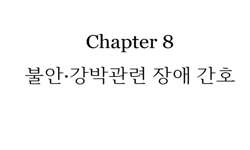본 연구는 서울 및 경기 지역의 주부 396명을 대상으로 결혼불만족이 스트레스 반응에 미치는 영향에서 포커싱적 태도의 매개효과를 알아보고자 실시되었다. 또한 주부의 결혼불만족과 스트...
http://chineseinput.net/에서 pinyin(병음)방식으로 중국어를 변환할 수 있습니다.
변환된 중국어를 복사하여 사용하시면 됩니다.
- 中文 을 입력하시려면 zhongwen을 입력하시고 space를누르시면됩니다.
- 北京 을 입력하시려면 beijing을 입력하시고 space를 누르시면 됩니다.
https://www.riss.kr/link?id=A100291561
- 저자
- 발행기관
- 학술지명
- 권호사항
-
발행연도
2015
-
작성언어
Korean
- 주제어
-
등재정보
KCI등재
-
자료형태
학술저널
-
수록면
31-64(34쪽)
-
비고
학회 요청에 의해 무료로 제공
- 제공처
-
0
상세조회 -
0
다운로드
부가정보
국문 초록 (Abstract)
본 연구는 서울 및 경기 지역의 주부 396명을 대상으로 결혼불만족이 스트레스 반응에 미치는 영향에서 포커싱적 태도의 매개효과를 알아보고자 실시되었다. 또한 주부의 결혼불만족과 스트레스 반응 관계에서 포커싱적 태도의 하위요인별 매개효과를 밝혀 주부의 효과적인 스트레스 감소를 위한 보다 구체적인 포커싱적 태도의 활용 방안을 탐색하고자 하였다. 본 연구의 결과는 다음과 같다. 첫째, 결혼불만족과 행동적 스트레스, 신체적 스트레스 및 정서적 스트레스 반응과는 유의한 상관을 보이는 것으로 나타났다. 그러나 결혼불만족과 포커싱적 태도의 하위 요인 간의 상관에서는 체험과정 주의와 음미하기와 체험 지각하기에서만 유의한 상관을 보이고 있었다. 둘째, 결혼불만족이 스트레스 반응(행동, 신체, 정서)에 미치는 영향에 포커싱적 태도 중 체험과정 주의와 음미하기, 체험과정 수용과 행동하기, 적절한 거리두기는 매개하지 않은 것으로 나타났다. 그러나 체험 지각하기는 결혼불만족과 행동적, 신체적 그리고 정서적 스트레스 반응과의 관계에서 유의하게 부분매개하고 있었다. 이러한 결과를 통해 주부의 결혼불만족이 스트레스 반응에 영향을 미치고 있었으며 그 과정에 체험 지각하기가 매개하고 있음을 밝혀냈다. 이 연구는 향후 주부의 결혼불만족이 스트레스 반응에 미치는 영향에서 포커싱적 태도의 교육 및 다양한 활용에 관한 후속 연구를 촉진시킬 수 있다는 데 의의가 있다.
다국어 초록 (Multilingual Abstract)
This study aimed to examine the mediating effects of housewives’ focusing manners on the effects of marriage dissatisfaction on stress reaction. In addition, the study sought to determine the mediating effects of focusing manner by sub-factor in the...
This study aimed to examine the mediating effects of housewives’ focusing manners on the effects of marriage dissatisfaction on stress reaction. In addition, the study sought to determine the mediating effects of focusing manner by sub-factor in the marriage dissatisfaction and stress reaction relationship in housewives to explore the method of using a more specific focusing manner with the aim of effectively reducing such stress. Hypotheses were established as follows. First, housewives’ marriage dissatisfaction will have a relationship with stress reaction(behavioral, physical, emotional) and the sub-factors of focusing manners. Second, the focusing manner will mediate the effects of housewives’ marriage dissatisfaction on stress reaction. To verify the above hypotheses, 396 mothers in the Seoul and Gyeonggi regions were surveyed using the Korean Marital Satisfaction Inventory(K-MSI), the Stress Reaction Scale, and the Korean Focusing Manner Scale(KFMS). Data were analyzed using a frequency analysis, Pearson’s correlation analysis, and a regression analysis.
The findings of this study are outlined as follows. First, there was a significant correlation between marriage dissatisfaction and behavioral stress, as well as between physical stress and emotional stress reaction. However, in the relationship between marriage dissatisfaction and the focusing manner`s sub-contractors, there is a significant correlation only among attention to the experience process, appreciation, and perceptions of experience. Second, the effects of marriage dissatisfaction on stress reaction(behavioral, physical, emotional), focusing manner, attention to the experience process and appreciation, acceptance of the experience process and behaving, and an appropriate distancing did not mediate. However, perceptions of experience significantly partially mediated the relationship between marriage dissatisfaction and behavioral, physical, and emotional stress reactions. Thus, it was found that housewives’ marriage dissatisfaction influenced stress reactions, as well as that perceptions of experience mediated that process.
This study will include further follow-up studies on the education about and diverse uses of focusing manners in the effects of housewives’ marriage dissatisfaction on stress reaction.
목차 (Table of Contents)
- Ⅰ. 서론
- Ⅱ. 이론적 배경과 연구 문제의 설정
- Ⅲ. 연구 방법
- Ⅳ. 연구 결과
- Ⅴ. 결론
- Ⅰ. 서론
- Ⅱ. 이론적 배경과 연구 문제의 설정
- Ⅲ. 연구 방법
- Ⅳ. 연구 결과
- Ⅴ. 결론
- 참고 문헌
- 국문초록
- Abstract
동일학술지(권/호) 다른 논문
-
- 가톨릭대학교(성심교정) 인간학연구소
- 한금윤(Keum Youn Han)
- 2015
- KCI등재
-
인권교육의 시각에서 인성교육, 깨달음과 바뀜, 그리고 희망 바라보기
- 가톨릭대학교(성심교정) 인간학연구소
- 김녕(Nyung Kim)
- 2015
- KCI등재
-
- 가톨릭대학교(성심교정) 인간학연구소
- 안성조(Seong Jo Ahn)
- 2015
- KCI등재
-
- 가톨릭대학교(성심교정) 인간학연구소
- 정재우(Jae Woo Jung)
- 2015
- KCI등재






 DBpia
DBpia



